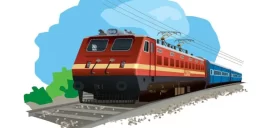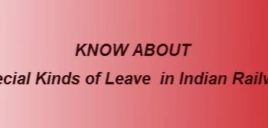ICF was set up in 1955 with the collaboration of the Swiss Car and Elevator Manufacturing Co. of Schlieren, Switzerland. The factory was set up originally with a capacity to produce 350 coach shells annually. ICF over the decades became very successful in producing the signature integral design (underframes, sidewalls, and roof integrated to form a single tube structure) anti-telescopic coaches of IR, in many different configurations. It now has a capacity of over 1,300 coaches a year, and has thus far manufactured over 35,000 coaches for IR. ICF currently maintains production capability for 170 different kinds of coaches.
In addition to coaches ICF also produces diesel railcars, EMUs, DMUs, and special purpose rail vehicles such as track recording vehicles and overhead equipment monitoring vehicles.
It has also exported coaches to many countries ([6/03] 425 since 1971; 60 to Myanmar, 45 to South Africa, 113 (+100?) to Taiwan, some to Thailand, Tanzania, the Philippines, Vietnam, Sri Lankaetc.)
ये भी पढ़े – सर्वाइकल पेन दूर करने के लिए 5 कारगर आसन
History
Indigenous manufacture of railway coaches had been contemplated for some time, with the first significant proposal being made in 1948 by N Gopalaswamy Ayyangar, then the Minister for Transport and Railways. Even earlier, however – in 1947 – interest had built up in the Schlieren company following a visit there by B Venkataraman, a senior mechanical engineer in the railways who was attending the International Railway Congress in Europe. Venkataraman was extremely impressed by the Swiss firm and made arrangements for apprentices from Indian Railways to train at Schlieren and study the technology of coach-building. However, it took some time before Venkataraman’s report to the Railway Board and the results of the apprenticeship program resulted in Swiss Car and Elevator being picked for the technology transfer project.
An initial agreement was signed on May 28, 1949. In 1951, a detailed proposal for a coach-building factory capable of producing 300 unfurnished coaches annually was laid out. (The capacity was eventually raised to 350 by the time ICF was inaugurated.) Supplemental agreements with Swiss Car and Elevator were concluded on June 27, 1953 and October 2, 1953. The production unit was inaugurated on October 2, 1955. The integral design of coaches this company made was radically different from that of the wooden-framed coaches that had been used in India until then. Accordingly, a Technical Training School was established at Perambur on March 20, 1954, with a capacity to train around 75 personnel annually on the new technology. Swiss trainers were in charge of the technology transfer until 1961, when the school was eventually shut down. By then over a thousand coaches had been produced by ICF. Manufacture of coaches started with the import of shells and other components for seven third-class coaches in February 1956.
On August 14, 1956, the first all-indigenous coach was commissioned. From 1958 ICF started furnishing the coaches it produced; a separate furnishing unit was added to ICF on October 2, 1962. In 1966, ICF began producing air-conditioned coaches. EMU production begain in 1962 with EMU trailer coaches, and motor units were produced from 1963. These were AC units. DC EMUs were manufactured starting in 1968. MG coaches were produced starting in 1963-64.
Note: Some sources (and ICF’s own web site) say that production started with 12 coaches in 1955, while other sources say it started in 1956. It is thought that ‘1955’ refers to the fiscal year for the production unit.
Source – IFRCA.org
This entry was posted in 2 Railway Employee, Know About, Railway General Information, Railway Employee










